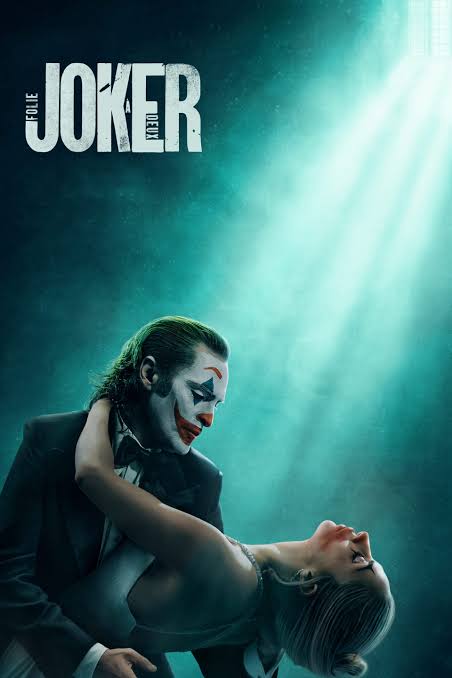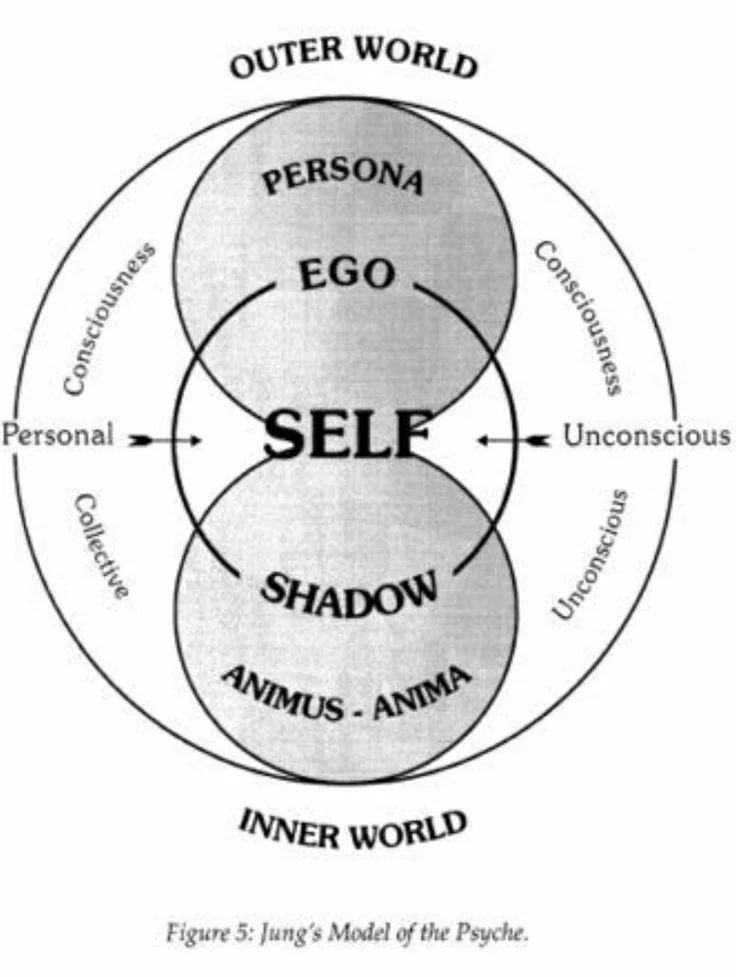
SYNOPSIS (Google)
Struggling with his dual identity, failed comedian Arthur Fleck meets the love of his life, Harley Quinn, while incarcerated at Arkham State Hospital.
REVIEW
Like the first successful Joker film, Todd Phillip extends his criticism on the same subject (also as how I have written in my first Joker review) which is the death of cinema.
The industry has been driven to make a show to please the audience, as the protagonist Arthur Clarke is portrayed as a demented person. On the flipside, the show also portrays the dark side of those involved in show business.
The fantastical musical approach to this cannot be anymore suitable for the theme and narrative as most of the scenes are playing in Arthur's mind.
A JUNGIAN PSYCHOLOGICAL PERSPECTIVE
The film started with an animation sequence aptly entitled 'Me and My Shadow'. And throughout that, it shows the Joker from the first film fighting with his shadow to be in control of the Ego or the Persona which is the Joker.
If this is not Jungian enough, I do not know what is.
With the conflict Arthur's is experiencing with his 'Shadow', it has taken his 'Self' deeper (refer to the attached diagram) into another conflict. This time it is with the inner feminine side of his subconscious mind, his Anima, represented by the presence of Harley Quinn. (Hence, the title 'Folie a Deux', which means 'delusion or mental illness shared by two people in close association. - Google)
Yes. She is also in Arthur's mind. Like his lady neighbor in the first film whom he thinks is in love with him.

ARTHUR IS TODD PHILLIPS
From my first review 5 years ago I've quoted him from an interview with Vanity Fair saying,
"Go try to be funny nowadays with this woke culture. There were articles written about why comedies don’t work anymore—I’ll tell you why, because all the fucking funny guys are like, ‘Fuck this shit, because I don’t want to offend you.’ It’s hard to argue with 30 million people on Twitter."
Thus, there were many instances where Arthur looked straight into the camera and gazed into the audience—you. The ending scene, with Arthur lying dead and gazing again toward the audience, is a morbid farewell to a comedy and a cinematic era.
A quote by Schopenhauer, "If you want to reach a large audience, appeal to idiots."
The court scene where Arthur admitted that he, and not his Persona, Joker did all the murders in the first film, cancels out the Joker as a DC villain character himself. To top it up, he met Harley Quinn on the iconic staircase and confessed that he is not the Joker anymore. Hence the reason Harley Quinn (which is his Anima which made him The Joker) left him.
At his lowest point, in the scene on the rustic jail public phone leaving a message to Harley Quinn (who just abandoned him), Arthur sang, what I think is an adaptation of Nina Simone's song 'Ne Me Quitte Pas'. A deep lamentation towards his psychological state is close to how the character Gollum had it with 'Gollum's Song' in the film The Two Towers.
ALL THE WORLD'S A STAGE - WILLIAM SHAKESPEARE
Arthur Fleck is one actor on it wearing his clown makeup as his 'Persona'. And the metaphorical 'mask' we all wear, which represents the false emotions in front of other people.
Watching this film in a whole might drive one into full catharsis and its bombing down in the box office is nothing but to prove what Todd Phillips saying about today's audience has been validated.
Todd cleverly left some open-ended for The Joker character for the franchise to pick on later, with the character that killed Arthur might be the next Joker. And the young DA Harvey Dent lying injured.
This film has added deeper layers into the Joker's character with his inner conflict cleverly depicted. His place in Gotham (which can be any modern city on the planet) and the rustic dystopian background is a commentary on a broken system. Such as the normalization of murder and genocide on our TV screen by Hollywood. And the rotten one-sided justice system (topped with the court being blown out at the end). Not your normal skin-deep villain which future Batman would have an easy time handling.
And the Judge looked and talked like Martin Scorsese (who was the producer of the first Joker) and got whacked to death in one scene by the protagonist. Also, it is said in many scenes that a TV show has been produced based on that murder that took place on live TV. This could mean Todd Phillips might be reinforcing that the first film happens totally in Arthur's head (with the ending happening in the asylum)
Quoting from my review of the first Joker 5 years ago,
"It is about Todd Phillips's lamentation on the death of comedy itself. In the early days of production, he was asked about the genre of Joker and he said it was 'tragedy'.
Arthur said “I used to think that my life was a tragedy. But now I realize, it’s a comedy.”
Such is the tone of Frank Sinatra's song, "That's Life". But instead of taking it morbidly and giving up, we should, like Albert Camus said, put our heads up and accept it in all its absurdity.
Like how Shahnon Ahmad puts it in his novel 'Sampah' of all its 'Kepakuman' (absurdity), Pyanhabib Rahman said 'Brader, Kita Mesti Terus Hidup!".